Stories > A Community That Cares
A Community That Cares
Through a non-profit in Shanghai, Singaporean Linda Painan organises a slew of programmes to look after the well-being of expatriates and locals alike.
BY ALYWIN CHEW
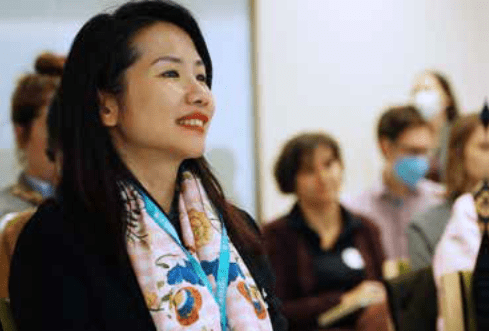
Singaporean businesswoman Linda Painan helped set up TEC in Shanghai, a nonprofit that helps both foreigners and locals with finding employment.
hen Linda Painan extended a helping hand to a fellow expatriate at a manicure salon in Shanghai 25 years ago, she never expected that her gesture could have such a profound impact on the stranger.
Though all she did was make small talk and help translate what the Chinese manicurist was saying, the Singaporean had unknowingly prevented her African American counterpart from making a lifechanging decision.
Weeks after that chance encounter, her new friend revealed that she had actually planned to leave her husband and return to the US with her son that very night. “She told me that she had had enough, that she felt as if she was going crazy,” recalls Painan. “She couldn’t speak the local language, barely had any friends in Shanghai, and her husband was always travelling for work and entertaining clients.
“The locals would walk up to touch her hair because it looked so different – and that made her somewhat ill at ease too. But after that conversation we had at the salon, everything changed. She suddenly had a friend, and in this she saw hope.”
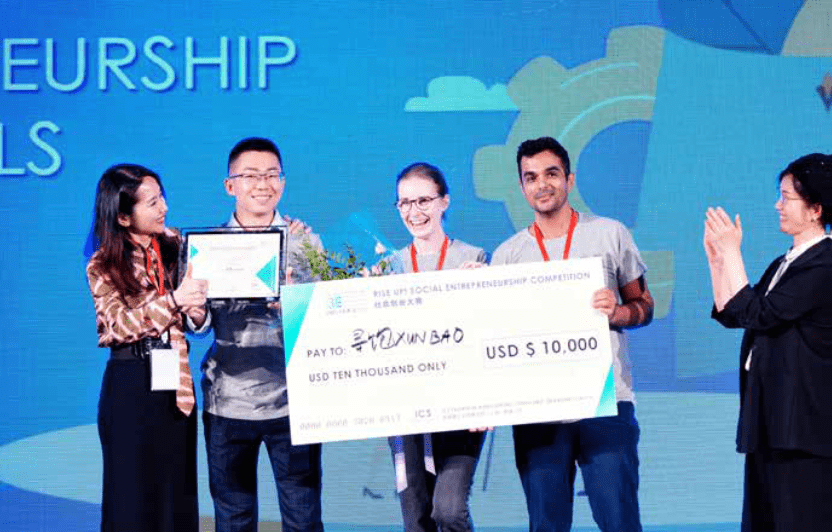
TEC held an event in September 2020, which focused on employment, entrepreneurship and enterprise, connecting people from different countries.
CONNECTING PEOPLE
Today, the Singaporean continues to lend a helping hand to fellow expatriates, albeit on a much larger scale.
She helped set up The Expatriate Center (TEC), a non-profit organisation back in 2018. Located in Shanghai’s Changning District, which is home to most of the city’s expatriate community, the centre acts as a matchmaker that connects foreigners to job opportunities, volunteer activities, networking sessions and even professional psychological support.
“I’ve often been asked this question: ‘Why do you need to help expats? They’re so wealthy, they have foreign pay packages and presumably, they are able to enjoy a comfortable life.’ But what most people don’t know is that there are expats who would call TEC and tell us that they are on the verge of taking their own lives. Living in a foreign land can be difficult for some people,” says Painan, adding that expat life is often glamourised in a stereotypical manner.
As such, TEC has connections with organisations like Life Line, an organisation that provides support to people with depression, as well as the Shanghai International Mental Health Association.
In September 2020, TEC held its biggest event to date – the 3E (Employment, Entrepreneurship and Enterprise) International Fair, which sought to help people who had lost their jobs during the Covid-19 pandemic, and encouraged exchange between local and foreign companies.
A first-of-its-kind to be held in the city, the event gathered multinational corporations, state-owned enterprises and six chambers of commerce from areas such as Europe, Asia and South America.
“Covid-19 has changed the hiring landscape. For example, it’s very difficult to hire overseas talent now because of all the travel restrictions. What we’re trying to do is integrate the various networks across the city and maximise talent resources. By connecting all these various parties, you get a wider spectrum of jobs that people never had access to before,” she explained.
“I JOINED TEC BECAUSE I REALISED THAT THIS ORGANISATION IS COMMITTED TO HELPING THE COMMUNITY, ESPECIALLY FOREIGNERS WHO, BEING FAR AWAY FROM THEIR HOMES, MAY NOT HAVE A LOCAL SUPPORT SYSTEM. THIS CAUSE RESONATED WITH ME BECAUSE WHEN I WAS STUDYING IN SINGAPORE, I RECEIVED A LOT OF SUPPORT AND CARE FROM A GROUP OF SINGAPOREANS,” SAYS SHANGHAINESE FAYE YANG.
Despite its name, TEC is not just about expats. For instance, the organisation also provides assistance to local nursing homes, welfare institutes for the disabled and service centres for the elderly. In December 2020, TEC’s Christmas gala helped raise close to 856,000 yuan (S$177,165) for five local charities.
Faye Yang, a local Chinese who works as a liaison associate at TEC, says that her job has allowed her to learn more about Singapore and its people.
“In the process of interacting with Singaporeans like Linda, I have noticed that they are very focused and efficient when doing things, and are good role models to follow. Learning to work like them has helped me to deal with my tasks better,” says Yang.
“I joined TEC because I realised that this organisation is committed to helping the community, especially foreigners who, being far away from their homes, may not have a local support system. This cause resonated with me because when I was studying in Singapore, I received a lot of support and care from a group of Singaporeans.”
In May 2021, TEC rolled out its volunteer app, which allows locals and foreigners alike to find a volunteering activity in the city that they would like to participate in.
TAKING THE LEAD
But TEC is not the only place where Painan, who describes herself as a “full-time volunteer”, channels her efforts.
Since January 2012, she and her husband, Eddie Ng, who runs a real estate company, have been involved in charitable efforts in Sichuan province, where they help build infrastructure such as schools and water towers in rural communities. The couple also created a mentoring programme where volunteers from Ng’s company provide teaching assistance and motivation to students from these areas.
Their charitable efforts were just as prolific during the pandemic. After learning about the Covid-19 outbreak in China in late January 2020, they pulled out all the stops to secure a whopping 200,000 surgical masks from Indonesia to be shipped to China, which was then facing a shortage. The couple paid for the masks out of their own pockets.
When the situation in China stabilised in mid-2020, they helped arrange another batch of masks to be transported from China to other nations like France, Indonesia, Singapore, Italy, the Philippines and the US, where the pandemic situation had created a need for more masks.
When asked what drives her to lend a helping hand to others, Painan said that she cannot bear to be a bystander in the face of turmoil that affects people around her.
“I feel a heavy burden when I know that I can do something to help. I know I cannot take care of all the issues in the world. No one can,” she says.
“But if I don’t start, and if we all wait for someone else to get the ball rolling, nothing is going to get done.”
This penchant for selflessness, she muses, was probably developed when she was a child. Born into a traditional Chinese family in Medan, in Indonesia’s North Sumatra province, she often witnessed her mother giving away free mineral water and biscuits from the family-run factory to the needy.
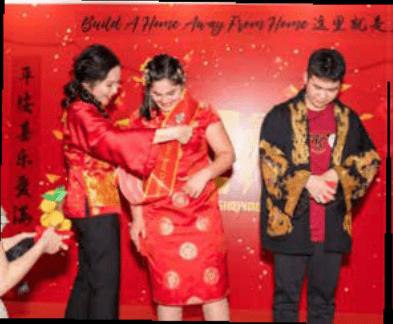
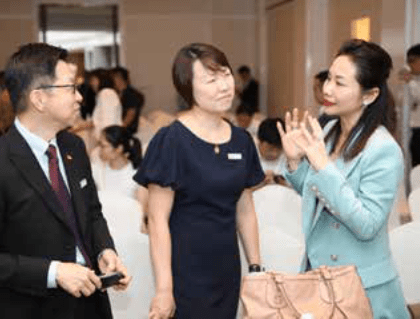
Through social events, Painan aims to bring both the expatriate and local communities together; after attending a Covid-19 forum in 2020, Painan helped arrange for masks to be sent to countries facing a shortage.
“Love is a common language. It can break through many barriers. Especially true in the current context, the Covid-19 pandemic has taught us that people, regardless of their race or background, can come together in the face of adversity to help make the world a better place.”
Linda Painan, director, The Expatriate Center, Shanghai
“Back in those times, racial tensions in Indonesia were high. But despite the strained relations, my mother gave generously, regardless of racial or ethnic background,” says Painan, who moved to Singapore when she was five.
This compassionate side of her mother has clearly rubbed off on her. When Painan received her first paycheque, she gave part of it to the Community Chest, the fundraising and engagement arm of the National Council of Social Service in Singapore.
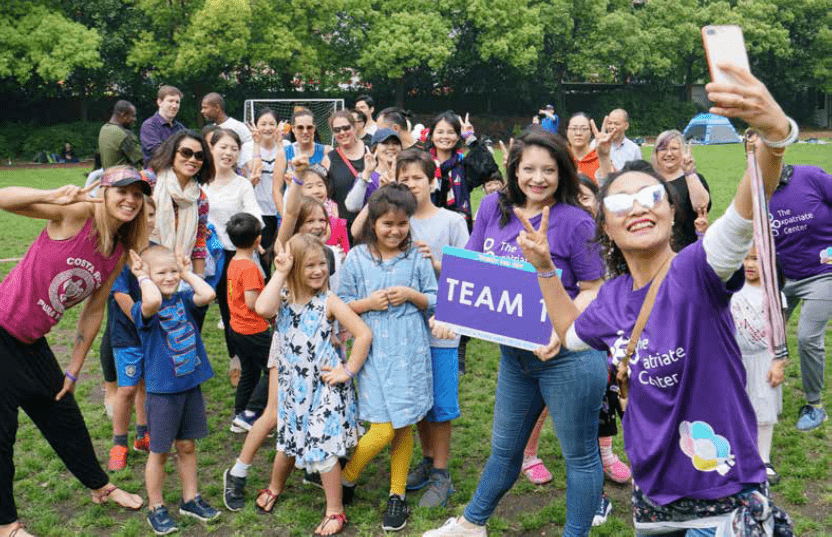
TEC’s Family Day for expatriates in Shanghai brought together people from diverse cultural backgrounds.
CULTURAL LEARNINGS
Having spent a large part of her life in Shanghai interacting with people from all over the world, Painan can claim to have gained insights into the human conditions that others do not have. One of them, she says, is the common misconception about the mainland Chinese.
“I’ve heard that many foreigners harbour a bias against the local people. But there are good people and bad apples everywhere,” she says.
“Another thing to note about the Chinese culture is that communication is more about the nuances and implicit meanings. They are just more tactful. This sometimes causes them to be misunderstood by cultures where people are more straightforward with their thoughts,” she adds.
Through her experiences of connecting people, Painan has also learnt that humans can be more than willing to empathise and befriend those from completely different cultural backgrounds and nationalities.
“It seems natural for people to stick to their own cliques because of a common language and culture. I also used to think that we need to band together with our own kind, but that’s just not the case,” she says. “Sometimes we do so because we just don’t have a chance to get out of our bubbles.”
The most important lesson gleaned from her experiences in Shanghai and her volunteering stints, she notes, is that everyone has the capacity to love and do good, and make a positive difference.
“Love is a common language. It can break through many barriers. Especially true in the current context, the Covid-19 pandemic has taught us that people, regardless of their race or background, can come together in the face of adversity to help make the world a better place,” she says.
